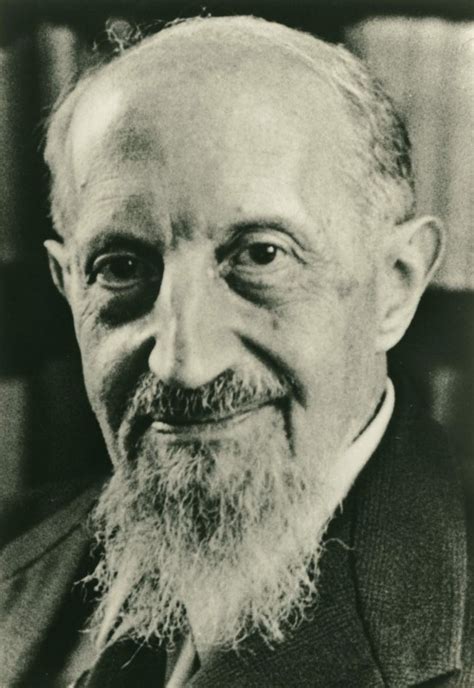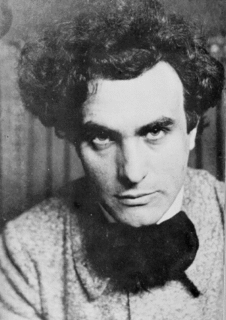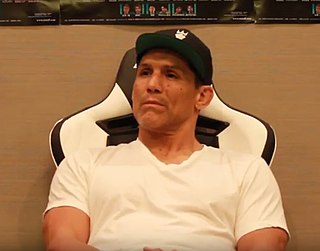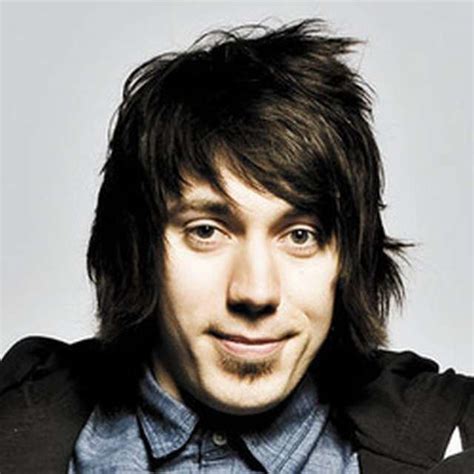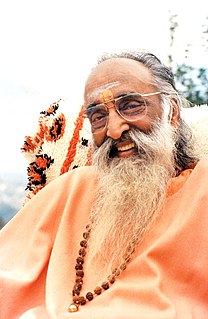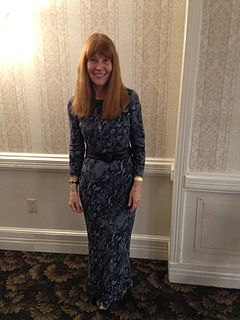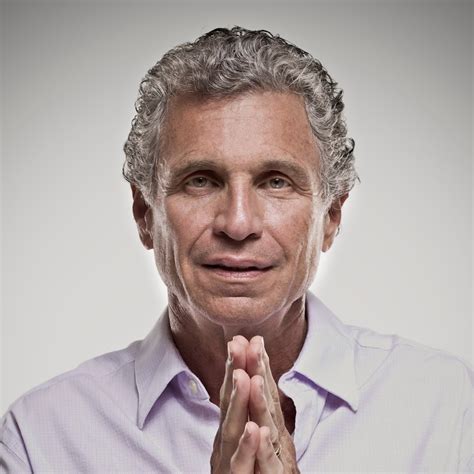Top 1151 Unconscious Quotes & Sayings
Explore popular Unconscious quotes.
Last updated on April 16, 2025.
Big ideas come from the unconscious. This is true in art, in science, and in advertising. But your unconscious has to be well informed, or your idea will be irrelevant. Stuff your conscious mind with information, then unhook your rational thought process. You can help this process by going for a long walk, or taking a hot bath, or drinking half a pint of claret. Suddenly, if the telephone line from your unconscious is open, a big idea wells up within you.
The term "self" seems a suitable one for the unconscious substrate whose actual exponent in consciousness is the ego. The ego stands to the self as the moved to the mover, or as object to subject, because the determining factors that radiate outward from the self surround the ego on all sides and are therefore supraordinate to it. The self, like the unconscious, as an a priori existent out of which the ego evolves. It is, so to speak, an unconscious prefiguration of the ego. It is not I who create myself; rather, I happen to myself.
The collective unconscious appears to consist of mythological motifs or primordial images, for which reason the myths of all nations are its real exponents. In fact the whole of mythology could be taken as a sort of projection of the collective unconscious. We can see this most clearly if we look at the heavenly constellations, whose originally chaotic forms are organized through the projection of images. This explains the influence of the stars as asserted by astrologers. These influences are nothing but unconscious instrospective perceptions of the collective unconscious.
We have been conditioned as a society to believe that you stand there in a gentlemanly fashion and punch each other in the head until someone is unconscious and we celebrate. We celebrate the fact that I can punch him in the head until he is unconscious and can't think straight and stand up. I gotta tell you, I have a problem with that sport.
You can never hit someone to the body and cause them to go unconscious. To be hit in the body is an unconscious experience that one has to endure. Signals of pain shoot instantly from you liver to your brain telling you how uncomfortable it is to be in that situation. Then it's up to you to find out if you can stand up or not.
The unconscious is the only available source of religious experience. This in certainly not to say that what we call the unconscious is identical with God or is set up in his place. It is simply the medium from which religious experience seems to flow. As to what the further cause of such experience might be, the answer to this lies beyond the range of human knowledge.
We're finally becoming aware of a process that has been unconscious since human experience began. From the start, humans have perceived a Birth Vision, and then after birth have gone unconscious, aware of only the vaguest of intuitions. At first in the early day of human history, the distance between what we intended and what we actually accomplished was very great, and then, over time, the distance has closed. Now we're the verge of remembering everything.
Music is, by far, the best art. Nothing even comes close. It's so immediate and emotional. In writing, maybe ninety percent of it is the unconscious and ten percent is control. In music, I think it's probably more like ninety-nine percent the unconscious. It's just a beautiful thing happening through you. And so, too, is writing a great story.
Vegetarianism has nothing to do with religion: it is something basically scientific. It has nothing to do with morality, but it has much to do with aesthetics. It is unbelievable that a man of sensitivity, awareness, understanding, love, can eat meat. And if he can eat meat then something is missing he is still unconscious somewhere of what he is doing, unconscious of the implications of his acts.
I write my first draft by hand, at least for fiction. For non-fiction, I write happily on a computer, but for fiction I write by hand, because I'm trying to achieve a kind of thoughtless state, or an unconscious instinctive state. I'm not reading what I write when I wrote. It's an unconscious outpouring that's a mess, and it's many, many steps away from anything anyone would want to read. Creating that way seems to generate the most interesting material for me to work with, though.
Writer’s block is my unconscious mind telling me that something I’ve just written is either unbelievable or unimportant to me, and I solve it by going back and reinventing some part of what I’ve already written so that when I write it again, it is believable and interesting to me. Then I can go on. Writer’s block is never solved by forcing oneself to “write through it,” because you haven’t solved the problem that caused your unconscious mind to rebel against the story, so it still won’t work – for you or for the reader.
It is only through the psyche that we can establish that God acts upon us, but we are unable to distinguish whether these actions emanate from God or from the unconscious. We cannot tell whether God and the unconscious are two different entities. Both are border-line concepts for transcendental contents. But empirically it can be established, with a sufficient degree of probability, that there is in the unconscious an archetype of wholeness.
Humans lived for several million years as fully wild beings: only in the last 10, 000 did we invent agriculture; only in the last couple of centuries did we invent industry. We are a species that has spent 99 per cent of its history as hunter-gatherers. We haven't had time for our unconscious minds and our unconscious needs to have changed. If you like, our souls have not changed, and this is true whether or not we believe that we have them.
We must all acknowledge our unconscious biases, and listen with less bias when women, and others who are marginalized, speak out. A lot of change is possible by just acknowledging unconscious bias - that exhaustively documented but unpleasant reality many would rather ignore - and listening with less bias and acting on what we then learn.
The child's mind is not the type of mind we adults possess. If we call our type of mind the conscious type, that of the child is an unconscious mind. Now an unconscious mind does not mean an inferior mind. An unconscious mind can be full of intelligence. One will find this type of intelligence in every being, and every insect has it.
Many who know something but not enough about dreams and their meaning...are liable to succumb to the prejudice that the dream actually has a moral purpose, that it warns, rebukes, comforts, foretells the future, etc. If one believes that the unconscious always knows best, one can easily be betrayed into leaving the dreams to take the necessary decisions, and is then disappointed when the dreams become more and more trivial and meaningless...The unconscious functions satisfactorily only when the conscious mind fufills its task to the very limit.
We think we can – as normal people generally do – put up with a certain amount of unanalyzed unconscious material as long as it remains more or less quiet and does not interfere with normal life and normal activities When the unconscious disturbs, it has to be dealt with; if it keeps quiet, we do not make a systematic offensive against it.
The essential fault of surrealism is that it invents without discovering. To make a clam play an accordion is to invent not to discover. The observation of the unconscious, so far as it can be observed, should reveal things of which we have previously been unconscious, not the familiar things of which we have been conscious plus imagination.
Behaviorism proposes to study human behavior according to the methods developed by animal and infant psychology. It seeks to investigate reflexes and instincts, automatisms and unconscious reactions. But it has told us nothing about the reflexes that have built cathedrals, railroads, and fortresses, the instincts that have produced philosophies, poems, and legal systems, the automatisms that have resulted in the growth and decline of empires, the unconscious reactions that are splitting atoms.
Applause is an instinctive, unconscious act expressing the sympathy between actors and audience. Just as our art demands more instinct than intellect in its exercise, so we demand of those who watch us an apppreciation of the simple unconscious kind which finds an outlet in clapping rather than the cold intellectual approval which would self-consciously think applause derogatory. I have yet to meet the actor who was sincere in saying that he disliked applause.
Our mind has its history, just as our body has its history. You might be just as astonished that man has an appendix, for instance. Does he know he ought to have an appendix? He is just born with it....Our unconscious mind, like our body, is a storehouse of relics and memories of the past. A study of the structure of the unconscious collective mind would reveal the same discoveries as you make in comparative anatomy. We do not need to think that there is anything mystical about it.
Build pockets of stillness into your life. Meditate. Go for walks. Ride your bike going nowhere in particular. There is a creative purpose to daydreaming, even to boredom. The best ideas come to us when we stop actively trying to coax the muse into manifesting and let the fragments of experience float around our unconscious mind in order to click into new combinations. Without this essential stage of unconscious processing, the entire flow of the creative process is broken.
I feel that when a white child goes to school only with white children, unconsciously that child grows up in many instances devoid of a world perspective. There is an unconscious provincialism, and it can develop into an unconscious superiority complex just as a Negro develops an unconscious inferiority complex.
So let us decide whether you want a shelter, a safety zone, which will no longer yield conflict, whether you want to escape from the present conflict to enter a condition in which there shall be no conflict; or whether you are unaware, unconscious of this conflict in which you exist. If you are unconscious of the conflict, that is, the battle that is taking place between that self and the environment, if you are unconscious of that battle, then why do you seek further remedies? Remain unconscious.
Presently we have to train our unconscious to function better. Then we can depend upon our instincts, that will be noble instincts. At this moment, our instincts are very impure. When we have practiced for a long time, living the higher values of life and following the instructions of great masters or the Scriptures, that is when you have trained your unconscious. Then when a situation comes, you can to an extent, depend on your inner voice.
Much of traditional magic takes place by the light of the Moon. In the night world we are closer to the unconscious, the hidden, that which has yet to be made manifest, that which is suppressed and as yet realized. Past, present, and future are simultaneously one in the realm of the unconscious. Night is when this world and the other world can meet.
You have to learn to trust - and listen to - your unconscious mind. If you pose the question to your unconscious "is this person a friend or a foe" - safe or a threat - your unconscious mind is hard-wired to assess that brilliantly for you. It's just that we're not very good at paying attention to what our unconscious minds are telling us.
At the core of One Spirit Medicine is the idea that how we perceive the world 'out there' is a projection of internal maps that shape our beliefs and guide how we think, feel and behave. These maps are the unconscious programs that drive our experience of life and the state of our health. The key to optimum health is to upgrade these unconscious maps and limiting beliefs that have been driving us to a toxic lifestyle and relationships.
No one yet understands the mysterious intelligence within plants or the implications of the idea that nature communicates in a basic chemical language that is unconscious but profound. We do not yet understand how hallucinogens transform the message in the unconscious into revelations beheld by the conscious mind.
The best indicator of your level of consciousness is how you deal with life's challenges when they come. Through those challenges, an already unconscious person tends to become more deeply unconscious, and a conscious person more intensely conscious. You can use a challenge to awaken you, or you can allow it to pull you into even deeper sleep. The dream of ordinary unconsciousness then turns into a nightmare.

